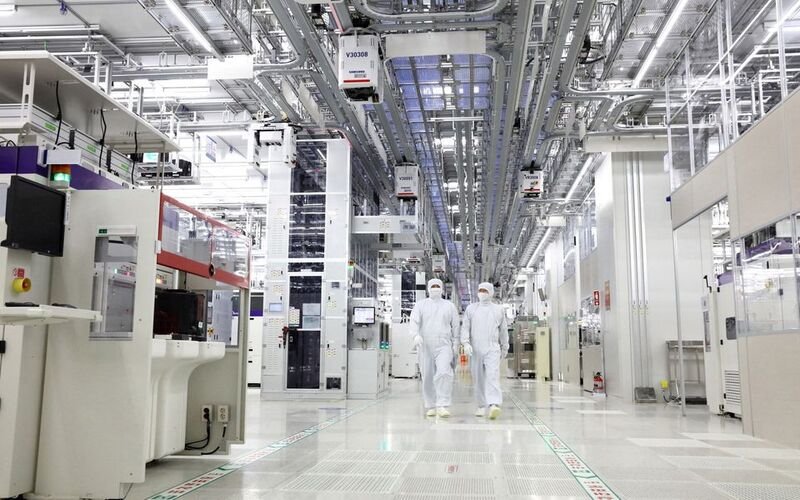Samsung Q3 profit set to slump 80% as chip losses persist. The impacts of a continuing worldwide chip oversupply are projected to generate losses in what is typically the South Korean technology giant’s cash cow division, causing Samsung Electronics’ (005930. KS) third-quarter earnings to plunge by an estimated 80% when compared to the same period a year earlier.
On Wednesday, the world’s largest manufacturer of memory chips, cellphones, and televisions will release the preliminary profit figures for the third quarter of their fiscal year.
The operating profit for the July-September quarter is expected to have decreased to 2.1 trillion won ($1.56 billion), according to an LSEG SmartEstimate that was compiled using the opinions of 19 analysts and weighted toward those who are more consistently correct.
Compared to the operational profit of 10.85 trillion won recorded in the September quarter of the previous year, this figure is much lower.
The semiconductor segment of the company, which has typically been its most profitable business unit, is expected to have posted quarterly losses of between 3 trillion and 4 trillion won as a result of the fact that rock-bottom memory chip prices have not recovered as quickly as some analysts had projected they would.
According to industry analysts, Samsung’s reductions in chip manufacturing have also harmed economies of scale, which has led to an increase in the cost of producing semiconductors.
After announcing its intention to reduce production for the first time in April, analysts believe that Samsung reduced production even more during the third quarter to minimize inventory and prepare for the worst industry slump in decades.
Last month, a competitor, Micron Technology (MU.O), predicted a quarterly loss, which sparked fears about a slow recovery in the memory chip maker’s end markets, such as data centers.
Because of mounting concerns about the state of the economy, producers of mobile devices and personal computers have been holding off on purchasing new memory chips in favor of working through their existing stockpiles over the past few months.
Analysts believe that because their stockpiles are now low enough, demand should increase again towards the beginning of next year.
According to a report published by KB Securities at the end of last month, Samsung recently ordered server memory chips from a data center company in North America for the first time in over a year. This has raised optimism that other data center clients would also begin buying chips again.
It is still a bright side that there is a strong demand for memory chips used in artificial intelligence, such as high bandwidth memory (HBM). However, Samsung lags behind its competitor, SK Hynix (000660. KS), in creating chips and securing clients like AI-chip leader Nvidia (NV.O).
As a result of the company’s debut of its premium foldable devices during the quarter, which helped drum up sales despite the slow global smartphone market, Samsung’s mobile unit most likely posted an operating profit of roughly 3 trillion won, according to the average projections from five experts.



































